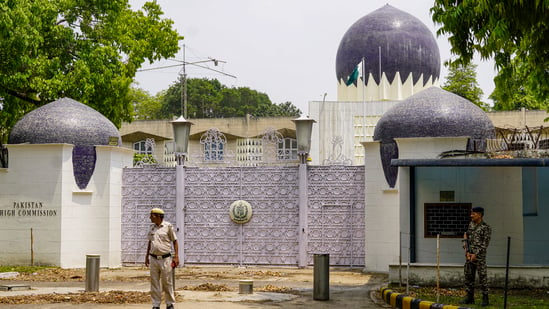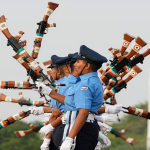The Government of India has declared a Pakistani official at the Pakistan High Commission in New Delhi as persona non grata for engaging in activities deemed incompatible with their diplomatic status. The official has been ordered to leave the country within 24 hours, according to a statement issued by the Ministry of External Affairs (MEA) on Wednesday evening.
“The Government of India has declared a Pakistani official, working at the Pakistan High Commission in New Delhi, persona non grata for indulging in activities not in keeping with his official status in India,” the MEA stated. A formal demarche was delivered to the Charge d’Affaires of the Pakistan High Commission, urging compliance with diplomatic norms and warning against further abuse of privileges granted under international conventions.
This is the second such diplomatic expulsion in May 2025. On May 13, another Pakistani High Commission staffer was expelled on similar grounds, further worsening ties between the two South Asian neighbors. These moves come amid a broader deterioration in relations following the April 22 terror attack in Pahalgam, Jammu and Kashmir, which killed 26 people, including Hindu and Christian tourists and a local Muslim resident.
India attributes the Pahalgam attack to Pakistan-based terror outfits, specifically Lashkar-e-Taiba. In response, the Indian military launched Operation Sindoor on May 6-7, conducting 24 missile strikes over a span of 25 minutes on terror camps and supporting infrastructure in Pakistan and Pakistan-Occupied Kashmir (PoK). Over 100 militants were reportedly killed, and 11 Pakistani air bases suffered damage. The Indian government emphasized that the strikes were carried out with “calibrated restraint” to minimize civilian casualties.
Union Minister Jyotiraditya Scindia described the operation as a “war to end terrorism,” highlighting the government’s resolve under Prime Minister Narendra Modi to eliminate threats at their source. In the days following Operation Sindoor, India successfully intercepted retaliatory Pakistani missile and drone strikes targeting 15 cities across the northern and western parts of the country.
Investigations into the Pahalgam attack have pointed to key Lashkar-e-Taiba figures believed to be in Pakistan, including Hafeez Saeed and Saifullah Kasuri, while Hashim Moosa is suspected to be hiding in south Kashmir. The Jammu and Kashmir Police have announced a ₹2,000,000 reward for information leading to the capture or elimination of those involved.
This latest diplomatic development is part of a wider escalation rooted in the longstanding Kashmir dispute, which has fueled military and terrorist conflicts since the first Indo-Pak war in 1947-48. Incidents such as the 2016 Uri attack and the 2019 Pulwama bombing continue to cast long shadows over bilateral relations. India’s recent extradition of Tahawwur Rana, convicted for involvement in the 2008 Mumbai attacks, underscores New Delhi’s hardened posture on cross-border terrorism.
India has briefed the UN Security Council on Operation Sindoor, framing it as a proportionate counterterrorism measure light of the Pahalgam attack. Meanwhile, nationwide security drills have been held across 244 districts to prepare for any further escalation, signaling the seriousness with which New Delhi views the current crisis.













